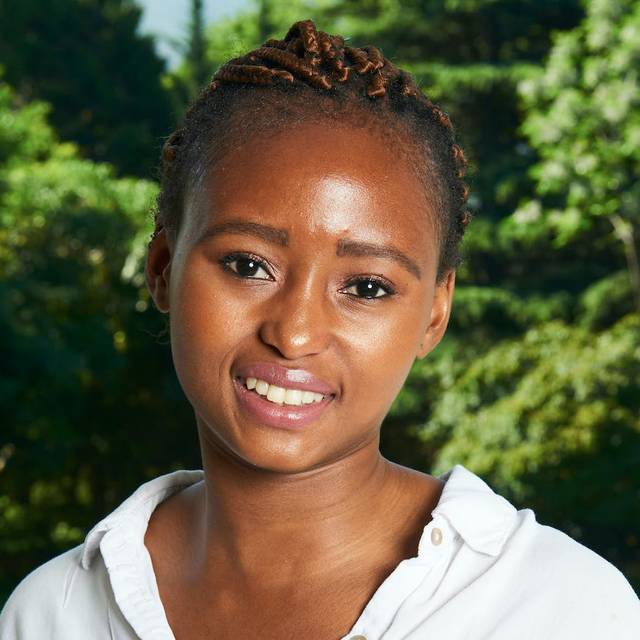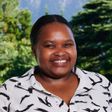
Scholar Stories
From offcuts to inputs: the entrepreneur creating a circular economy in fashion
For Esethu Cenga (South Africa & University of Cape Town, 2017), sustainability is about more than just compliance and ticking boxes. It is about social justice, dignity and quality of life.
The tide is turning against fast fashion and its unethical practices. One of the forces driving this revolution in South Africa is 2017 Mandela Rhodes Scholar Esethu Cenga. She and her business partners Tshepo Bhengu and Lonwabo Mgoduso founded Rewoven Co, a textile recycling startup aimed at creating a circular economy in the South African clothing and textiles sector. The way clothing is made in the global fashion industry works to the disadvantage of developing countries and predominantly exploits women of colour; they set out to change that.
Growing up, Esethu loved fashion – she chuckles as she confides that her dream was to be the editor of a fashion magazine. When it was time to choose a study course, however, she didn’t think Fashion Design was an option. It was years later as a Mandela Rhodes Scholar when, through the programme’s self-development work, she realised she could reconcile both parts of who she is. “I can be passionate about social justice and issues of development and sustainability while in the industry of fashion. Fashion is great platform to unpack a lot of the issues in our society.”
Esethu is a leader with heart. In conversation, the word “passion” comes up often. Passion is the fuel that powered her choices, ultimately resulting in her decision to establish Rewoven Co. On why she chose to take the leap into entrepreneurship, she doesn’t miss a beat: “I knew that it was my only truth.” A love for interdisciplinary work and a desire to see the world holistically led her to completing a BCom, an Honours in Politics, Philosophy and Economics, as well as a Masters in Development Studies. She was offered a job at one of the “big three” global management consultancies. Climbing the corporate ladder would have made her parents happy and been a marker of success among her peers, but she knew in her heart that that path was not true to her.
The idea for Rewoven began to germinate while she was writing her thesis. “I didn’t want to make my thesis just about anything. I really wanted it to be something that would inspire me and my journey afterwards.” She learned that many countries develop off the back of the clothing and textiles industry, and found that some major outlets were moving towards ethically sourcing some of their fabric. For example, H&M aims to have 100% of its fabric ethically sourced by 2025. This presents an opportunity for a country like South Africa – which has always prioritised ethical manufacturing practices in the clothing industry – to start supplying this growing demand.
The fast fashion industry also generates a huge amount of waste from offcuts, which goes into landfills. Esethu and her team realised that this textile waste could probably be recycled into something new. They took the idea to the Allan Gray Orbis Foundation Incubation Programme, where Rewoven was born. The business sources tons of textile waste from large garment manufacturers and processes it back into fibre. This recycled fabric is sold to businesses who use it for inputs. Aware of the need to preserve the environment, Rewoven solves the problem of waste disposal for manufacturers who would otherwise have to pay to dump their waste.
The entrepreneurship journey has not been without challenges. In a white male-dominated industry, trying to innovate as a young black team has been difficult. The Rewoven team have had their share of being undermined, mainly because they went straight from university into business. “A lot of people say we should have gone into corporate to gain experience, but I don’t believe in ‘should’. The age thing does have limitations, but we’ve been working very hard with mentors, coaches and a board of advisors. We also need to trust in ourselves. Ultimately entrepreneurship is not the type of thing that you can study for. You just learn it in the game,” she says.
Looking to the future, Esethu and her team’s biggest goal is to help significantly reduce unemployment by creating textile recycling jobs, as has been seen in the plastic recycling industry. In five years’ time they hope to be able to collect textile waste from all over the country, process it, and then sell fabric locally, to the rest of Africa and internationally.









